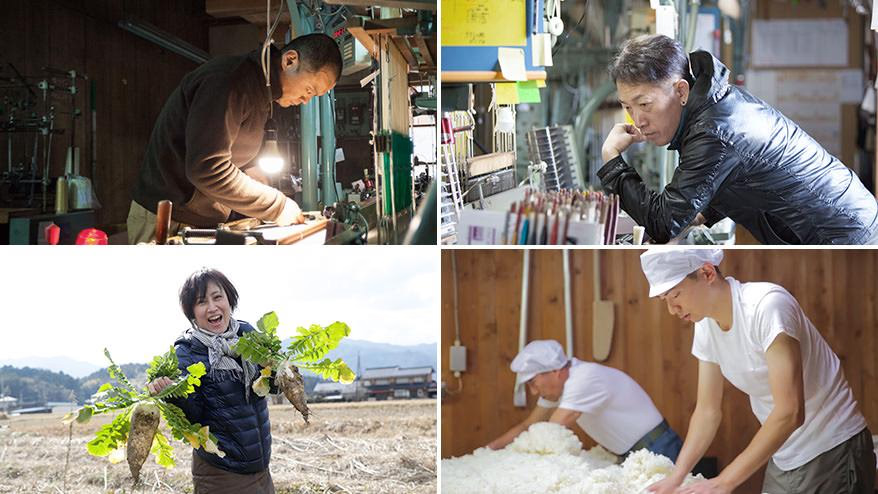Hello. This is Uehara from the Production Department.
Field Hack YOSANO is a hackathon organized by Monosus and managed by me, where teams of engineers, designers, project managers, and other members with the skills necessary for prototype development from all over the country will form teams to explore the possibilities of their local communities. We are now accepting entries for the event, which will be held in June!
(Please read this article to find out why Monosus is holding Field Hack.)
To coincide with the start of the entry period, the three themes for this year's event in Yosano Town have been decided: "Weaving," "Health Tourism," and "Fermentation."
In keeping with the theme, we have gathered together some (really!) wonderful Yosano brothers and sisters. There are also introductory videos at the end of each brother and sister's profile, so please take a look!
*Big Brother and Big Sister: Local collaborators who are involved in the industries and activities that are the subject of Field Hack
Now, let me introduce each theme.
Textiles - Preserving the traditions of the textile industry and weaving evolution.
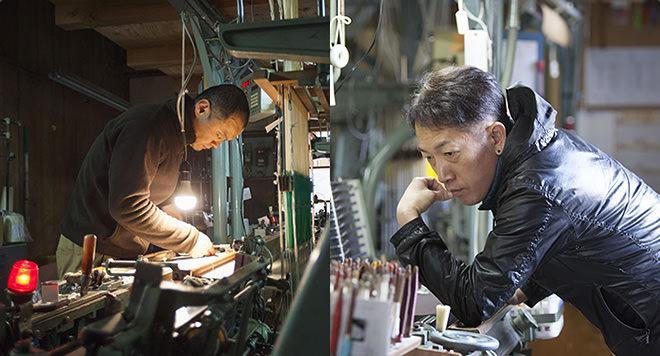
First of all, let's look at textiles.
Originally, it flourished as the main industry in Yosano Town, and the sounds of weaving could be heard everywhere you walked through the town. However, today, the area has shrunk to just 3% of its peak, and little of its former glory can be seen.
Even in this environment, the two brothers are always challenging themselves with new things, and they set the themes. The two of them are expanding the scope of their activities, not only in Japan, but also by making fabrics that are used in Hollywood movies, along with their thoughts for those involved in textiles.
Weaving involves mathematical and scientific elements, and to create a pattern, there is a process of programming the warp and weft threads using software, and then loading the programs into the loom (apparently until recently, these programs were mainly stored on floppy disks!).
This is a theme that will not only accelerate new initiatives, but also involve how to preserve and develop traditions.
Local brother: Shoji Yasuda (Yasuda Textiles)
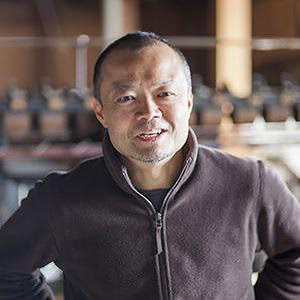
The third generation owner of Yasuda Textiles.
The company was founded in 1952 by my grandfather, who ran a thread business. As the business expanded, he wanted to weave fabrics in addition to threads, so he began weaving Tango Chirimen.
Yasuda Orimono is known for weaving Japanese clothing, especially white fabrics for summer. Summer fabrics are woven in a special way that gives them a sense of transparency, and are considered technically difficult. For Yasuda Orimono to still be in business after 100 years means that the current techniques will continue, and that not only will the company continue to exist, but also its customers, production areas, and fellow weavers.
He wants to think about what he should do now to prepare for 100 years from now.
Yasuda-san's introduction video
http://yosano-weaver.jp/post/117234159535
Local brother: Yuji Shibata (Shibata Textiles)
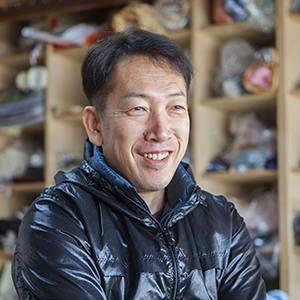
The second generation owner of Shibata Textiles, which was founded in 1964.
Based on Tango Chirimen, they produce a special fabric called Nuitori Chirimen. Nuitori Chirimen is a rare fabric, with a production volume of less than 0.4% of all Tango Chirimen, and in addition to the standard warp and weft threads, they weave in many colored threads (weft threads) such as gold and silver threads in a process called piece dyeing to create delicate patterns.
It takes three days to weave one bolt of fabric, which requires advanced techniques. We can weave everything from design to weaving in-house, even just one bolt of fabric, allowing us to take on a variety of adventures.
Shibata-san, who loves craftsmanship, designs and sells kimonos, and tries them on himself. He aims to create an environment where he can create kimonos while seeing the happy faces of his customers.
In recent years, this innovative weaver has expanded its connections to Tokyo and overseas, and is increasingly active, selling its materials to New York and receiving orders for materials for Hollywood films.
Shibata-san's introduction video
http://yosano-weaver.jp/post/120107898260/weaver-yuji-shibatamore
Health Tourism
~ Creating new tourism in the "village in the sky that nurtures beauty and health." ~

The second theme is "health tourism."
Health tourism is a new tourism initiative that has begun in the Onsue area of Yosano Town.
The concept is that visitors can recover from their daily fatigue and regain their daily vitality by experiencing the rich nature, delicious food, clean water, and fresh air that are the norm for the local people. Entitled "Oeyama-Atsue, a village in the sky that cultivates beauty and health," the challenge was decided upon by the whole community to provide visitors with a time that will please both their mind and body, and this is just the start of the project.
I think the biggest theme this time is how technology can contribute to the sense of security, warmth, and health that people feel when they go to the countryside, surrounded by nature, and how it can help them achieve that.
Local sister: Yukiko Kimura (Masa Farm)
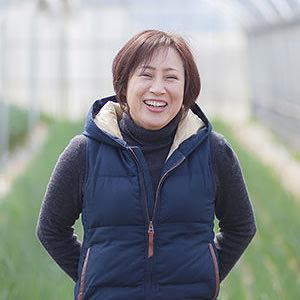
At Masa Farm, the owner, Masanori Kimura, grows rice, Kujo leeks, and cucumbers in greenhouses, while Yukiko processes and sells the crops she harvests.
When Masanori asked Yukiko what to do with the Kujo leek that had fallen out of spec, she started making "Kujo leek cookies" using her original skills in baking bread and sweets. Recently, the "leek chiffon cakes" have become popular at events and local supermarkets, and the number of orders has increased, so she now makes and sells them every week.
They want to aim for processed products at prices that only a farming couple can offer. In recent years, they have also focused on growing blueberries, and have begun to work in harmony with the couple, offering harvesting experiences and processing the fruit into smoothies.
Furthermore, since last year, she has been participating in community development in her hometown of Atsue. Until now, community development meetings were held only among the elderly in the area, but the elderly people have been able to sympathize with Kimura's ideas and her sensibilities as a woman, and she has now taken on the role of a central member of the next generation in community development.
Kimura-san's introduction video
http://yosano-weaver.jp/post/130310539975/weaver-masanori-yukiko-kimuramore
Fermentation ~ We want to revitalize agriculture through fermentation and local resources. ~
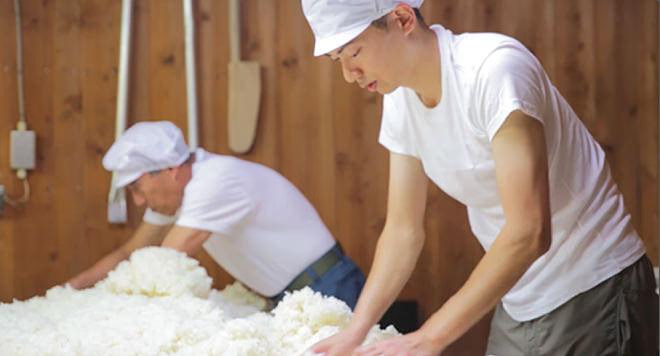
The final theme is "fermentation."
The master brewer who makes "Yosa Musume" and other sake varieties will cooperate as his older brother.
Yosano Town has abundant resources, including natural water from Mt. Oe and rice grown using natural recycling farming methods, making it an ideal region for sake brewing.
In this region, they do not just brew sake in the traditional way, but also express tastes that match wine culture, produce pure rice sake for overseas markets, and, with their feelings for Yosano Town, where population decline is a serious problem, they have the idea of increasing rice consumption through sake brewing and having people use sake as part of developing domestic and international sales channels for edible rice.They have a strong desire to revitalize agriculture and local resources with fermentation as their core.
This is a theme that allows us to challenge ourselves by asking ourselves, "How can we enliven the local community by using fermentation as a central theme?"
Local brother: Shiro Nishihara (Yosamusume Sake Brewery)
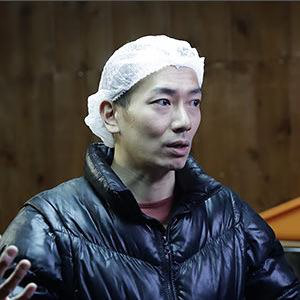
He is the chief brewer at Yosa Musume Sake Brewery, which was founded in 1887. Since the brewery's founding, they have been brewing sake using mainly locally grown sake rice, using high-quality underground water from Mt. Oe as the source water.
He studied brewing at university, and since taking over the family business as the sixth generation, he has continued to take on new challenges, adapting the brewing process to the changing weather and condition of the rice each year.
When it comes to sake brewing, we cherish the blessed environment in which our brewery is surrounded by rural scenery and has high-quality rice nearby.
In recent years, he has been actively using locally harvested rice, mainly Kyoto Mamekko rice, to brew his sake, and he says that what makes him happiest is hearing people who try his sake say things like "It's delicious" and "It's interesting," as he enjoys making things and sake that he enjoys.
In recent years, he has participated in an initiative with the Ministry of Economy, Trade and Industry to expand sales channels overseas. He has independently acquired a sales channel to Australia and is one of the young master brewers who is passionate about taking on new challenges around the world.
Nishihara-san's introduction video
http://yosano-weaver.jp/post/133104449055
We have put together a selection of interesting themes, each filled with the individual thoughts of the participants. If you are interested, please check out the event details and application process below.
Event Overview
Participants will take part in the following programs in order to harness the power of technology to explore the potential of Yosano Town together with Yosano Big Brother and Big Sister.
On Friday, June 9th, we will gather in Yosano Town for a kick-off meeting , where we will explain Field Hack and various themes. After that, we will split into groups based on themes together with local brothers and sisters and coordinators, introduce ourselves, and prepare for the field work the next day. (Participation via Google Hangouts is also accepted.)
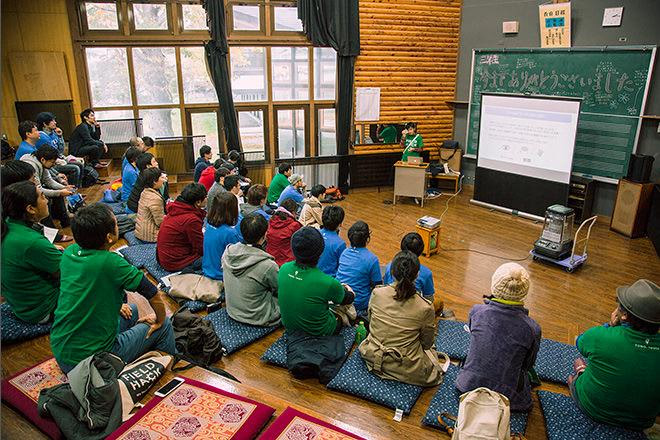
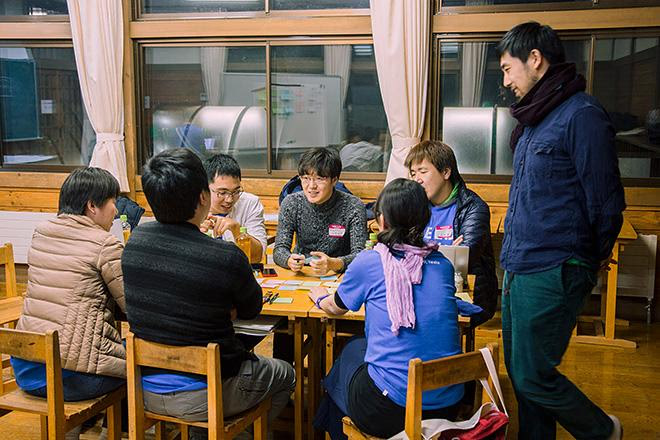
June 10th (Sat) Fieldwork & Analysis
The local brothers and sisters and the coordinator will carry out fieldwork based on the theme. After the fieldwork, there will be time to organize what you have seen and heard.
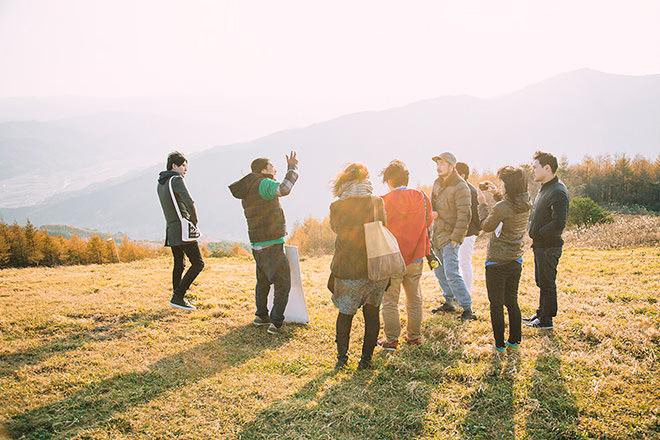
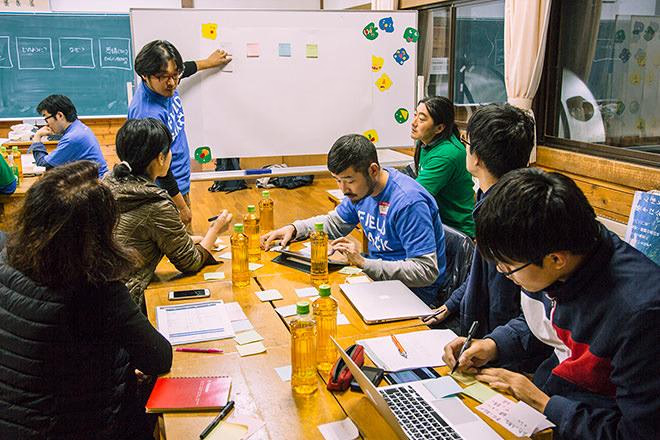
June 11th (Sun) Idea & Concept Sketch
The ideas gained from fieldwork are then turned into actual development images, and idea and concept sketches are made. Finally, each team shares their development schedule and the two-week prototype development period begins.
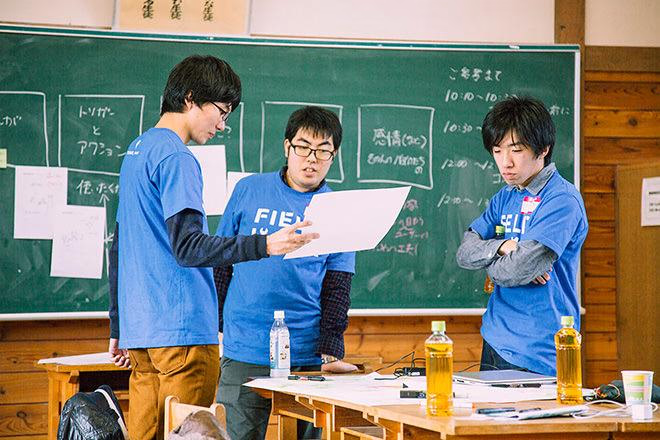
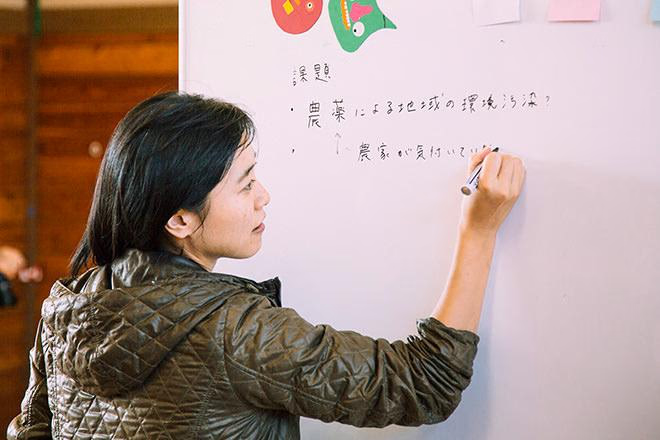
July 8th (Sat) / July 9th (Sun) Presentation & Consultation
Each team will give a presentation and demonstration to local residents to see how the prototype they developed will actually function in the local area. Afterwards, there will be an opportunity to discuss the next development plan with the local coordinator and older brothers and sisters in preparation for the implementation of the prototype.

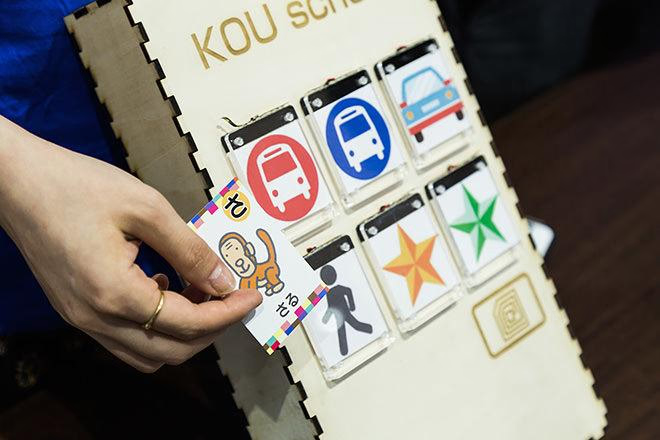
About the Application
If you are interested, please visit the website
The maximum number of participants is six teams. The organizers will select participants based on the skills and other information listed in the application form, and will notify the results by Monday, May 15th.
Why not use your ideas and skills to explore the possibilities of your local area?
We look forward to your participation!
